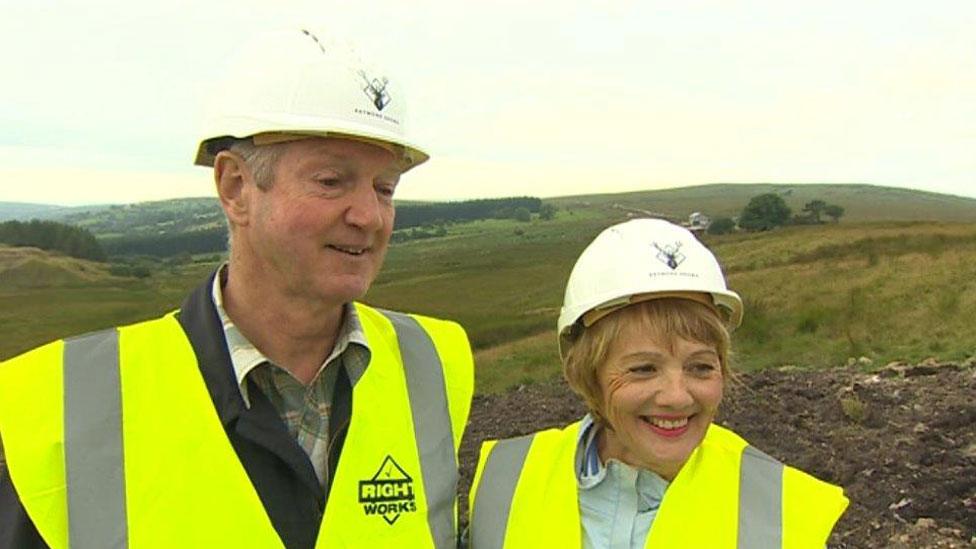Healthcare urged to look at co-operative model
- Published
- comments
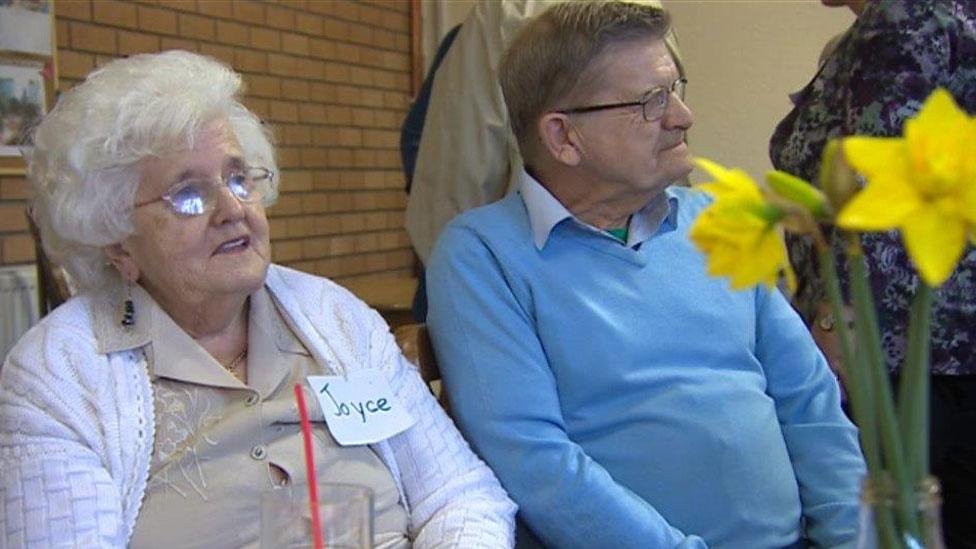
Joyce Samuel, 84, and Tony Lane, 71, use a day centre which runs as a cooperative
More worker-owned businesses could help deal with the budget shortfall for health and social care, according to the Wales Co-operative Centre.
Councils in Wales say they face a funding gap of £92m next year in social care alone.
A Welsh Government-backed programme, external is encouraging more care providers to think of the co-operative model.
Examples include a Monmouthshire dental practice which has become the first in Wales to run as a co-operative.
The Me, Myself and I Club in Neath Port Talbot is a place to go for people living with memory loss and activities include a walking club.
What makes it different from council bodies or private providers is that it is a co-operative, owned and run by its members and it operates as a not-for-profit organisation.
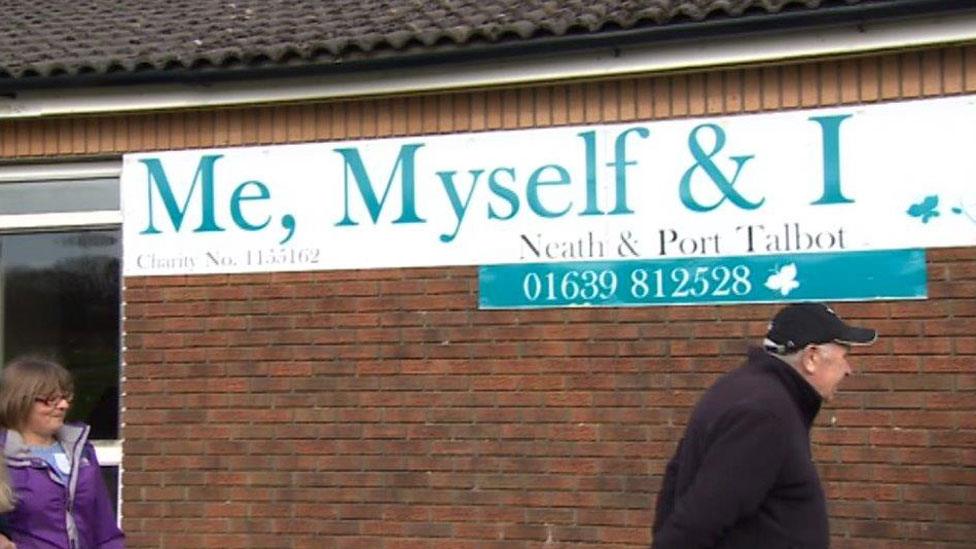
Me, Myself and I includes a walking club
Joyce Samuel, 84, and Tony Lane, 71, say it is a vital lifeline for them at a time when they have seen other services being taken away.
"It's very important because you're getting out of the house, meeting people, talking and forgetting about your worries. Your family are having a little break," said Mr Lane.
Mrs Samuel added: "It makes a lot of difference to me. I'm getting ready on Monday to come here on Wednesday afternoon."
Me, Myself and I also trains unemployed people to be specialist carers so they can get paid work with councils to look after people in their homes.
The Wales Co-operative Centre has the backing of the Welsh Government to create more organisations like this as part of its Care to Co-operate programme.
Derek Walker, chief executive of the Wales Co-operative Centre, said: "Social co-operatives aren't a silver bullet to the big pressures facing budgets.
"But they can play a role in a number of ways. They take the private profit out of the business - rather than going to distant shareholders they go back into the business.
"Also, there is access to financial support which might not be available to a private business."
Heath care is also dealing with funding pressures.
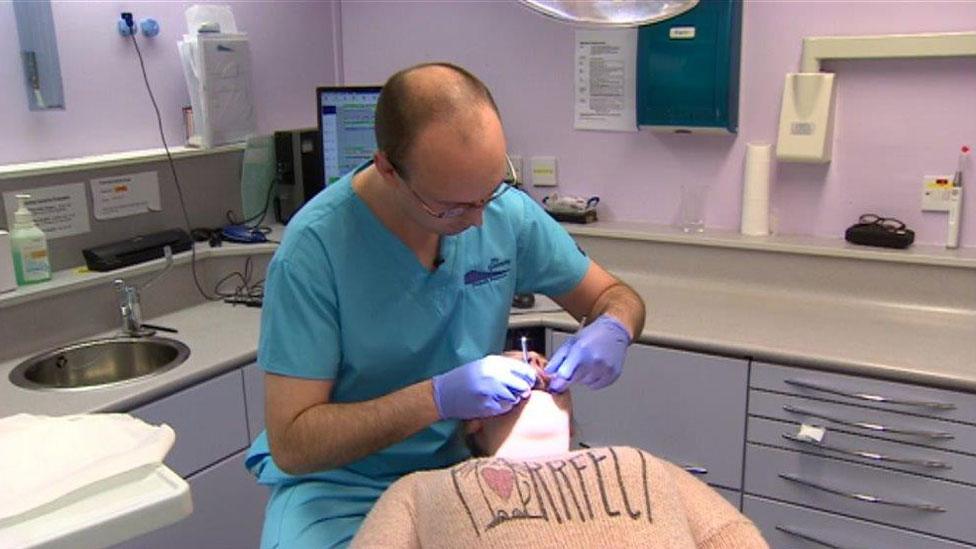
The Gateway dental practice is now a cooperative
In Abergavenny, a new way of delivering dental treatment is being tested.
When the owner moved to a new job with a health board, 17 staff including dentists, nurses and receptionists took over the business as a workers' co-operative.
It is the first practice of its kind in Wales and possibly the UK.
The founder of the practice, Michael Allen, left it behind for a new NHS role treating people who need special care, including those with advanced dementia and Alzheimer's disease.
'Strengths'
Mr Allen said: "There are ways in which organisations can structure themselves so the people at the coalface are taking some of that ownership of how they work and how their working environment develops and the decisions that need to be made."
Allowing the staff to take over this business meant it kept ownership local rather than it closing down or being taken over by a national chain dental company.
Dentist and co-owner Hannah Hutchison said: "It's quite a leap to being responsible for quite a lot of the business side - which as dentists working as associates in a practice we'd not really experienced before.
"So taking over the business side is completely different. But the joy of the co-operative is that people have strengths in different areas and they're able to do those things."
With an ageing population and budgets tightening, it is clear that health and social care services cannot be delivered in the way they have always been. In that case, co-operatives may play an increasing role in helping solve those issues.
- Published29 June 2013

- Published20 March 2017
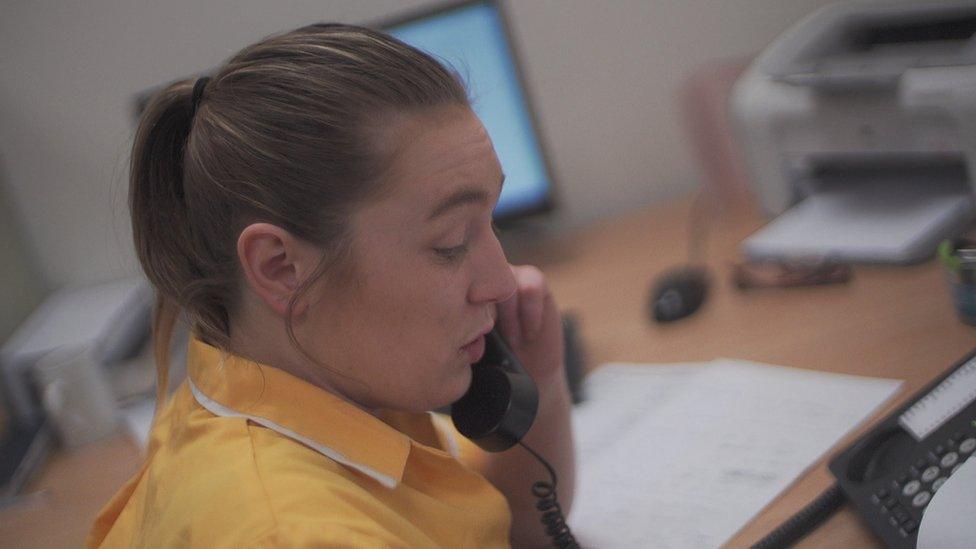
- Published16 August 2016
